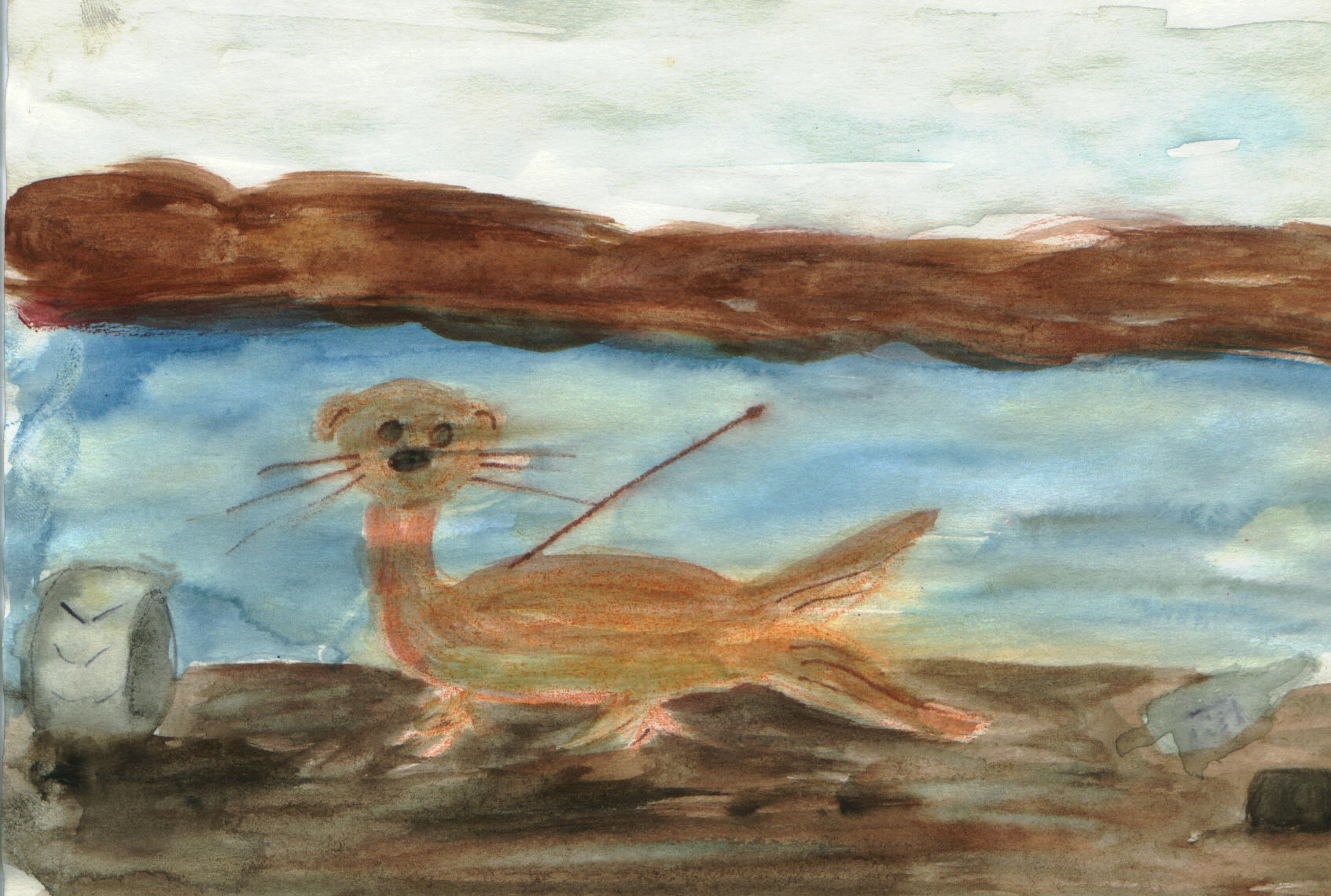| Editors Note: With West Virginians being warned to eat few fish from its lakes and mountain streams because of their mercury content from the burning of coal to make electric, Cawthon's column from 2001 was prophetic.
Sen. Joe Manchin, doing battle in Washington against the "War on Coal," just voted to reduce the standards on fossil fuel emmissions, which would have allowed more mercury in mountain streams and lakes. The effort was barely defeated in the US Senate.
By Jack Cawthon 2001
Only a few years ago Big Puf was like so many other hollers in rural
Appalachia. The people living there were happy with their large
extended families but cursed with the usual inbreeding that came from
isolation from the outside world.
Four-toed people were fairly common and acceptable. Even when greater
malfunctions occurred they were accepted as the will of God, and
mortal man dared not question that.
Of course there was poverty, but it affected nearly everyone and was
little talked about until the government came around looking for it.
By far the greatest social upheaval to affect the region, however, was
the issue of color.
It began with a visit one day by what the people thought might be a
white knight, but instead of riding in on a white charger he arrived
in a black Lincoln. Lester T. Archabald IV, a wealthy coal baron from
up north, was there to change the holler and the lives of the people
as no one before him had ever done.
He had discovered a rich seam of coal, known as the Lower Beelzebub,
which had out-crops along the holler and in no time at all his Fully
Degenerated Coal Company had bored into Big Puf Mountain with the
Belching Fire No. l mine.
As you might suppose, the Lower Beelzebub was a highly sulfurous vein
of coal, and before long the crick took on the orange color that
denoted many others in the coal country.
Few of the people were upset by the contamination of the crick, least
of all the ones mining the coal. The payroll made a vast difference
in the standard of living in the tri-holler community.
There were certain advantages of the orange-colored water. The
Baptists, who believed in full immersion, were easily identified by
their orange tint, and the Methodists by their splotching. When
someone with a decided lack of color happened by the people figured it
was one of the back-to-the-landers, or hippies, who shunned water both
internally and externally.
So, Big Puf, which had always been white Anglo-Saxon protestant
(WASP) became orange Anglo-Saxon protestant (OASP) and an emergence of
a new color arose, confusing the government workers with a completely
new classification.
As the crick ran orange the fish began dying. Before long the
fisheries biologists in Charleston had classified it as lifeless, but
the natives knew differently. From time to time, they had seen
strange little creatures along the bank. They appeared to be neither
fish nor animal. When a few were caught and examined they were found
to have little web feet, whiskers on a rounded cat-like face, a
central rod-like extension much like a cell phone antenna on a yuppie
BMW and by which they seemed to communicate, and, most outstanding,
they were colored a bright orange all over their bodies.
The natives dubbed the strange little crick dweller the Orange
Roughage Catfish because it seemed to be feeding on the orange sludge
which coated the rocks and streambed. As with the panthers roaming
the forests, the experts in Charleston referred to it as only a
delusion.
Suddenly Archabald's mining came to a standstill. He had encountered
a major fault strata and could go no farther. Never one to give up
easily, he moved on up higher on the hillside and penetrated the Upper
Celestial seam in the multi-seam coal and opened the St. Peter No. 2
mine.
No sooner had he bored into the hillside again than a rush of fresh
clear water came pouring out. He had found the perfect coal with no
impurities and the water proved it.
The industry appeared saved as environmentalists were clamoring to
close the Belching Fire mine anyway in a drive to clean up the tainted
waters of Big Puf Crick.
But as everyone cheered the salvation of coal, disaster struck. The
little orange catfish began turning belly-up as the clean water
flushed away its food supply and environment.
At last the biologists were forced to acknowledge its existence.
Moreover, it existed nowhere where else on earth! It was indeed an
endangered species and protected by federal law.
Something had to be done fast. Archabald was ordered to suspend
mining the Celestial seam and told to reopen the sealed Belching Fire
mine and allow the orange water to flow again into the crick. He was
faced with enormous fines and jail time if he didn't comply.
The orange outflow didn't prove sufficient and Archabald was ordered
to provide greater pollution. He tried pouring other contaminants such
as PCBs, mercury and barrels of concentrated acid into the stream-and
it worked. The Orange Roughage thrived on any source of major
pollution, it seemed, the stronger the better, but best of all it
relished out-of-state garbage, especially from New Jersey.
Hugh truckloads arrived daily and were dumped at the head of the
holler. The natives, meanwhile, were encouraged to do their own
polluting and the outhouses again became continual flush as they were
positioned over the water and household refuse was tossed out the
doors and windows.
The strain proved too much for poor Archabald. First ordered not to
pollute, then forced to pollute, his mind was affected. He began to
dress in rags, carry a large sign lettered "unclean," and ringing a
tiny bell like an unapproachable leper in the Good Book, he wandered
the back roads muttering to himself.
But worse was to come.

| 


